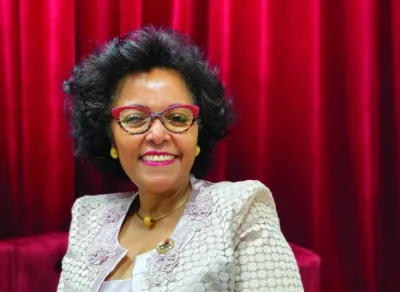Kenya’s central bank agreed to keep its interest rate steady during its November meeting on Thursday, as East Africa’s largest economy expects to recover from Covid-19 disruptions in the second half of this year.
The monetary policy committee maintained its benchmark rate at 7% for the sixth straight meeting since March, when it eased the policy environment to deal with the effects of the global pandemic.
The unchanged rate, which was eased over a period of months from 9% last November, indicates that the policy measures are “having the intended effect”, and that “resilience in the second half of 2020 continues to be supported by agriculture, a recovery in manufacturing, exports, and services following the easing of COVID-19 restriction,” the Central Bank of Kenya (CBK) said.
Kenya’s economy is estimated to have contracted by 0.4% in the first half of the year as widespread lockdowns affected the services sectors, particularly education, transport, accommodation, restaurants, and tourism.
However, the downturn was offset by strong growth in agriculture, health, ICT and the financial and insurance sectors.
The Kenya Tea Development Agency (KTDA) produced the most amount of green leaf tea in its 20-year history between July and October this year, for example.
Banks and telecoms companies reported a steep rise in traffic on digital platforms as Kenyans were encouraged to stay at home where possible.
Kenya’s export-led flower industry suffered enormous initial losses as demand fell in European markets and logistics routes were constricted by global lockdowns.
According to a survey by the CBK, all responding flower farms indicated that they are now operational, compared to 56% in April and May.
Employment and export orders for flowers have improved and are now close to pre-Covid-19 levels. But the risk of further disruptions remains likely as lockdowns accompany the broad trend of a second wave of the deadly virus.
In the hospitality sector, where many hotels had closed for several months, 96% of the respondent hotels are now open, compared to 89% in September, the CBK said.
The survey revealed “improved expectations of economic activity in the next two months, and improved optimism on economic prospects for the next twelve months.”
Kenya’s foreign exchange reserves currently stand at $7,952m– covering around 5 months’ worth of imports – and inflation remains well anchored at 4.8%, the CBK said. Banks remain well capitalised, with strong “liquidity and capital adequacy ratios”, it added.
CBK governor Patrick Njoroge said global business sentiment has improved on the back of “very recent announcements of Covid-19 vaccines, and the conclusion of the US elections.”
The CBK will meet again in January 2021 but “remains ready to re-convene earlier if necessary.”
Want to continue reading? Subscribe today.
You've read all your free articles for this month! Subscribe now to enjoy full access to our content.
Digital Monthly
£8.00 / month
Receive full unlimited access to our articles, opinions, podcasts and more.
Digital Yearly
£70.00 / year
Our best value offer - save £26 and gain access to all of our digital content for an entire year!
 Sign in with Google
Sign in with Google 



